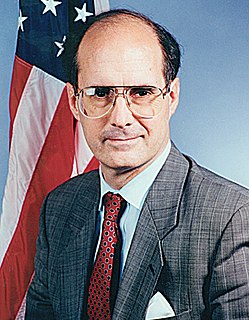A Quote by Robert Kennedy
When historians consider the significance of the Berlin crises of the mid-20th century, I do not believe that they will record it as an incident in the encirclement of freedom. The true view, in my judgment, will be to see it rather as a major episode in the recession of communism.
Related Quotes
A dining club which I was involved in at Oxford University invited Sir Isaiah Berlin to dinner, who I believe was probably the greatest liberal philosopher in the 20th century. I sat beside him and we spoke about liberal philosophy and the events of the 20th century all night over dinner - it was unforgettable!
D-Day represents the greatest achievement of the american people and system in the 20th century. It was the pivot point of the 20th century. It was the day on which the decision was made as to who was going to rule in this world in the second half of the 20th century. Is it going to be Nazism, is it going to be communism, or are the democracies going to prevail?
There are many people in the world who really don't understand, or say they don't, what is the great issue between the free world and the Communist world. Let them come to Berlin. There are some who say that communism is the wave of the future. Let them come to Berlin. And there are some who say in Europe and elsewhere we can work with the Communists. Let them come to Berlin. And there are even a few who say that it is true that communism is an evil system, but it permits us to make economic progress. Lass' sie nach Berlin kommen. Let them come to Berlin.
While Pickstown may not be what it once was, it still is framed by the natural beauty of the ancient river, the sweep of the Great Plains, and the long, unbroken shoreline of the lake behind the dam. It gave me a 19th-century childhood in a modern mid-20th-century town, and for that I will always be grateful.
If you look back on the history of the 20th century, the 19th century or even to the ancien régime of the 18th, you will see that first people rebelled against the order of the things because of lack of liberty, and demanded more freedom. And when they got more freedom, they got frightened, and they desired more security for a change. After a while, they started complaining, although more secure, they also become more dependent and rule-bound.
The years ahead will be great ones for our country, for the cause of freedom and the spread of civilization. The West will not contain Communism, it will transcend Communism. We will not bother to denounce it, we'll dismiss it as a sad, bizarre chapter in human history whose last pages are even now being written.
Earlier this week ... scientists announced the completion of a task that once seemed unimaginable; and that is, the deciphering of the entire DNA sequence of the human genetic code. This amazing accomplishment is likely to affect the 21st century as profoundly as the invention of the computer or the splitting of the atom affected the 20th century. I believe that the 21st century will be the century of life sciences, and nothing makes that point more clearly than this momentous discovery. It will revolutionize medicine as we know it today.
When there is pressure for leaders to respond to problems or crises, they often simply intensify their efforts in their particular defined sphere of activity - even if that's not relevant to the real problem. To do otherwise requires taking on entrenched practices and asserting power in areas where it often will not be well received. And leaders tend to see major crises more as threats to their own position rather than as systemic challenges for the societies that they govern or the institutions that they manage.
Here is one optimists reason for believing unity will prevail ... within the next hundred years ... nationhood as we know it will be obsolete; all states will recognize a single, global authority. A phrase briefly fashionable in the mid-20th century -- citizen of the world -- will have assumed real meaning by the end of the 21st. All countries are basically social arrangements, accommodations to changing circumstances. No matter how permanent and even sacred they may seem at any one time, in fact they are all artificial and temporary.


































